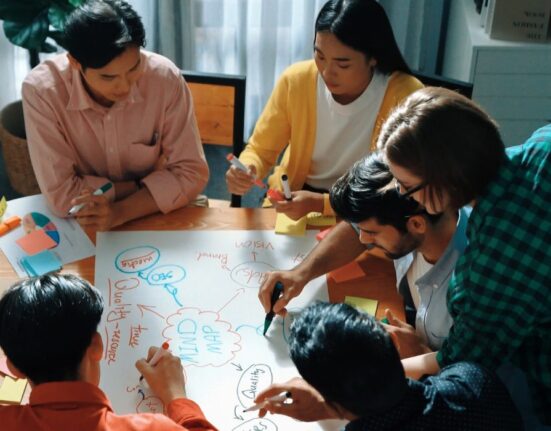The pace and demands of modern life have made it harder than ever to care about things. With a plethora of information available online, we are no strangers to how cruel people can be, but with so much going on in our lives, we may not sympathize with others as much as we should. Researchers and social workers believe that apathy is the most dangerous thing in the world. (Karmapa,2015).
So much information is available about the environment and the need to protect it. However, the problem is that while everyone has access to this information, many people mistake it for knowledge. As a result, they do not feel the need to take any action. With the overflow of information inundating us, things that once held significance may not matter as much anymore.
According to Psychologist Samar Hafeez, Apathy is essentially a lack of interest or concern. It is often a symptom of depression, where the patient experiences a disconnection from activities and interests that they previously enjoyed. Even when engaging in once pleasurable activities, the individual is unable to find any enjoyment in them. This lack of pleasure and concern towards life is a key indicator of depression. It’s important to note that not everyone experiences apathy; it typically arises within the context of certain mental health conditions.
What Is Social Apathy?
Social apathy is a pervasive phenomenon in contemporary societies and refers to the lack of interest, concern, or empathy regarding social issues and the well-being of others. It manifests in various forms, from indifference to pressing global challenges to disengagement from community and societal affairs. (Kalantari et al., 2007). In a world filled with epidemics, wars, violence and poverty, social apathy becomes the biggest barrier against collective action in favour of positive change. (Sanatkhah and Akbarzadeh, 2017)
Origin Of Social Apathy
Social apathy happens because society’s focus on economic growth has outpaced its focus on developing a strong moral sense of caring for others. It grew as values modernized, focusing more on adapting to change and less on integrating with society’s cultural and social aspects. The phenomenon of modernization has ignored the need to develop as individuals with the main goal being replaced as success.
The measure of success has changed from finding meaning in life to economic growth and image. With the emergence of capitalism, a culture of mass consumerism was observed. With the spread of the system of consumer loans, there has been an increase in real purchasing power, creating a demand for instant gratification. With thousands of new products and luxuries being introduced every day, success is now measured by material goods instead of personal growth.
Read More: Psychology Behind Growth Mindset
Post-industrial society is characterized by constant renewal and instability. People are not in a stable position. Due to this, uncertainty and instability, private life is given more emphasis than public life. The increasing value of consumption has made seeking safety and comfort the priority of youth (Martínez-Alcalá et al, 2018).
Why the Issue of Apathy is Increasing
Another contribution to the problem is the growing individualization of society. Individual freedom is considered the highest value concerning the interests of social groups and the state (Velieva et al., 2018).
There is a huge flow of information, literally falling on us every single day, destroying the whole picture of the world. People are drowning in the pool of information, making it harder than ever to establish cause-and-effect relationships to understand what is happening.
There is a sharp change in value systems caused by the transition from socialism to capitalism. Due to the rapid change in economic relations and the absence of new moral justifications for capitalism. The values that people took for granted were destroyed in a short historical period.
Overconsumption of material goods has generated a state called happy apathy. Through overconsumption of goods, an illusion of well-being and life satisfaction is created. Society wallows in comfort, attempting to artificially achieve meaning in their lives by buying more and more. People have started to seek more and more and are in a constant sense of dissatisfaction, which leaves little room to be concerned with others.
According to Assistant Professor and Psychologist Dr Jyoti Sharma, Of course, it’s a concern when people lack Fundamental Feelings of Trust (FFT) in their relationships, whether with themselves or with others. When there is no interest in self-care or in cultivating compassionate connections, it indicates a disconnection. To address this, individuals need to reconnect with themselves and with others.
A growing plant, for instance, thrives with a connection. If it is only watered but there is a disconnect, its growth can be hampered. Either it will grow very slowly, or it will stop growing altogether. Thus, connections and emotions can build and change the surrounding environment and our relationship with it. Therefore, empathy must be deeply ingrained in a person’s mind. This can be achieved through increased emotional awareness and understanding of one’s emotional expressions. By reconnecting with their body and emotions, individuals can foster a deeper connection with themselves.
Holistic wellness involves nurturing the mind, body, and spirit. Passion is intimately linked with the soul and heart, and both of these are core components of high-vibrational states like compassion and forgiveness. Therefore, enhancing our connection with ourselves and others is essential for overall well-being, also staying active, emotional awareness, social support, and knowing the cause of disconnect can be helpful.
Read more: Why you should get out of your Comfort Zone and Make Things Happen?
Addressing the issue of Apathy
To address the issue of increasing apathy, we need to promote altruism and nurture meaningful relationships. Some methods to cultivate compassion include:
- Community Engagement: We need to motivate and guide people to actively participate in community events. By encouraging volunteering and networking we can create a sense of responsibility towards society.
- Teaching Empathy In Schools: By teaching empathy and compassion in schools, children will be able to understand the impact of their actions on others. By cultivating empathy from a young age, we can create a generation that values kindness and compassion.
- Practising Mindfulness: By being fully aware of the present, aware of where we are and what we are feeling we will be able to understand the impact of our actions on others. Research suggests that mindfulness increases activity in neural networks involved in understanding the suffering of others and regulating emotions.
To defeat the evil of apathy we need to fight fire with fire. As discussed, the consumer market’s increasing individualisation and technological progress are the main causes of social apathy. We need to use the same technological advancement to fight it. We need to use social media and global network communities to show the negative consequences of apathy.
By using settings such as virtual reality, we can make people feel the impact of global issues that are usually overlooked as “not our problem”. By acknowledging our feelings and connecting with ourselves and those around us, we can create meaningful relationships that help us grow and develop into our best selves. The road to eliminating social apathy is long, but by caring about our community again, we can open the door to new possibilities and a better future.
References +
- https://doi.org/10.30958/ajmmc.8-2-4
- Humanities & Social Sciences Reviews eISSN: 2395-6518, Vol 7, No 4, 2019, pp1248-1254 https://doi.org/10.18510/hssr.2019.74172
- Martínez-Alcalá, C. I., Ramírez-Salvador, J. A., Rosales-Lagarde, A., & Jiménez-Rodríguez, B. (2018). Assistance and Support of Primary Caregivers through an eService Platform. Journal of Information Systems Engineering & Management, 3(1), https://doi.org/10.20897/jisem.201809
- Cherdymova E.I., Ukolova L.I., Gribkova O.V., Kabkova E.P., Tararina L.I., Kurbanov R.A., Belyalova A.M., and Kudrinskaya I.V. (2018). Projective Techniques for Student Environmental Attitudes Study. Ekoloji, 27(106): 541-546.
- Velieva, S.V., Mashkin, N.A., Khairullina, E.R., Semenova T.N., Varlamova M.E., Guseva, T.S., and Dolgasheva, M.V. (2018). University student professional self actualization: Context of personality subjectivity. Espacios, 39(20): 12.
- Sarfaraz, A., Ahmed, S., Khalid, A., & Ajmal, M. A. (2012). Reasons for political interest and apathy among university students: A qualitative study. Pakistan Journal of Social and Clinical Psychology, 10(1), 61-67.













Leave feedback about this